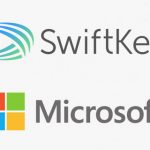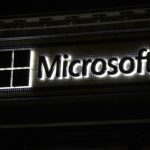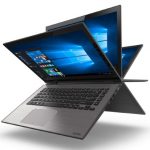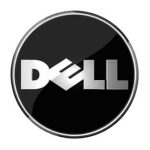Foxconn buys Sharp for $3.5 billion

Last month Sharp announced that Foxconn would be acquiring the company for $6.2 billion. However Foxconn was concerned with the financial future of Sharp and decided to put the deal on hold in order to renegotiate some of the terms.
Now the deal is finally complete and Foxconn has acquired a 66 percent majority stake in Sharp for around $3.5 billion. This is the largest overseas investment in a Japanese company to date and its proposal caused quite a stir in Japan.
Data loss is one of the main reasons for failed mergers and acquisitions

Data loss is one of the bigger reasons why mergers and acquisitions fail, losing companies millions of pounds each year. Those are the results of a new survey conducted by dedicated virtual data room provider for merger and acquisition deals, ansarada.
According to ansarada's report, 71 percent of UK executives involved in mergers and acquisitions have confirmed that their deals have been delayed due to loss of critical data.
Microsoft buys Xamarin to strengthen mobile side

If a few years back we were laughing off Microsoft's efforts in the mobile market, today we are looking at the software giant in a different light. That "mobile first, cloud first" mantra that Satya Nadella introduced us to when he became CEO now defines Microsoft, which has quickly evolved into one of the most important players in the mobile space afterwards.
Under Nadella, Microsoft has tackled mobile in a more meaningful way, refocusing its strategy so that it could become a major developer for more than Windows and Windows Phone. Today, the software giant's best services and products are also found on Android and iOS, the most important mobile platforms, and more have been added following high-profile acquisitions like Acompli and SwiftKey. Now, Microsoft adds Xamarin to its mobile portfolio, proving once again that it is dead serious about conquering mobile.
Fujitsu, Toshiba and Vaio plan to merge PC divisions

Toshiba, Fujitsu and Vaio, which was recently spun off from Sony, have entered into the final round of negotiations to integrate their PC divisions.
If the three firms can reach an agreement, they plan on establishing a joint holding company with subsidiaries responsible for running each firm's PC businesses.
Amazon Web Services buys NICE to strengthen cloud offerings, boost customer base

Amazon Web Services, Amazon's cloud computing arm, has bought the Italian software and service company NICE for an undisclosed sum. AWS is after NICE’s 2D and 3D desktop cloud virtualization software that allows 3D developers and game designers access to work remotely from any type of computer.
This works because the hardware required to render the 3D images is supplied by the cloud not the computer that the developer is using to access their designs.
Opera Software wants shareholders to accept $1.2bn buyout offer

Opera Software, the company behind the Opera web browser for desktop and mobile devices, has received a $1.2 billion buyout offer from a consortium of Chinese Internet firms.
The company’s board is recommending shareholders to accept the deal, which is higher than Opera Software's valuation at closing time on the Oslo exchange. Rumors of a possible buyout of the company led to its stock being suspended for two days.
Microsoft buys SwiftKey

Since November 2014, Microsoft has purchased a number of major apps and games to bolster its mobile portfolio on Android, iOS and, of course, Windows and Windows Phone. It has added Minecraft, Acompli, Sunrise and Wunderlist under its belt, titles which have been very popular and highly regarded by smartphone and tablet users. These acquisitions have turned the software giant into one of the strongest developers on the aforementioned platforms.
But Microsoft is not stopping there, as it just announced the purchase of SwiftKey, one of the most popular third-party keyboards available for Android and iOS. And, just like that, four of my favorite apps are now owned by the software giant.
Docker buys Unikernel Systems

Docker, the Californian technology company behind the open source virtual container platform, has announced the acquisition of Unikernel Systems, a Cambridge-based startup.
Unikernel Systems has a rather unique product that Docker plans to integrate into its own tools and services as it views a future beyond just containers. The integration of Unikernels into Docker would allow developers to build even more efficient microservice architectures.
Microsoft acquires analytics startup Metanautix

Microsoft has announced that it has acquired Metanautix, a startup company that was developing its Quest data compute engine which aims to help large enterprises filter through their vast amounts of in-house data.
Metanautix, which was co-founded in 2012 by Theo Vassilakis and Toli Lerios, was launched in September 2014 after raising $7 million of funding after Quest had been two years in development.
VMware backs out of Virtustream venture, leaving EMC on its own

VMware, the US cloud software company, said it will not participate in the joint venture cloud services Virtustream with its parent company EMC.
The announcement was made in a recent regulatory filling, which you can read here.
Toshiba may spin off its PC business following weak sales

Toshiba may be looking to spin off its PC division, and merge it with that of other computer manufacturers. The company has already stated that it plans to sell part of its semiconductor unit to Sony Corp.
Toshiba is aiming to cut out the least profitable units of its operation after an accounting scandal that occurred earlier this year.
IBM goes into the weather business -- no, really

IBM’s artificial intelligence computer Watson is expanding into the weather forecast territory. According to the company, it is buying The Weather Company’s B2B, mobile and cloud-based web properties, including WSI, weather.com, Weather Underground and The Weather Company brand.
The TV segment -- The Weather Channel -- will not be acquired by IBM, but will license weather forecast data and analytics from IBM under a long-term contract, the company added.
Western Digital acquires SanDisk in $19 billion deal
It's Michael Dell versus the world and Dell will win

In my last column I wrote that Dell buying EMC is a great idea (for Dell) and left it to this column to more fully explain why that is so. It takes two columns because there is so much going on here in terms of both business models and technologies. As the title suggests it comes down to Michael Dell against the world and in this case I predict Dell will win, Cisco, HP and IBM will lose, Apple will be relatively unaffected and I don’t really know what it will mean for Microsoft but I think the advantage still lies with Dell.
One thing that is key is every one of these companies except Dell is publicly traded and answerable to Wall Street while Dell is for now answerable only to the gods of Texas bidness who must at this point be giddy with greed. So all of these companies except Dell have essentially the same playbook -- cutting costs, laying-off workers and outsourcing like crazy all to pay for the dividends and stock buybacks Wall Street defines these days as prudent corporate behavior. In contrast to this defensive game Dell can use its free cash flow to transform the company and dominate the market -- what 20 years ago we would have thought of as the right way to build a company. How quaint.
Dell might snap up EMC for $50 billion

A merger between Dell, private-equity firm Silver Lake and EMC might be on the cards, as the storage giant considers a few options. The merger would cost Dell $50 billion (£32 billion), making it the largest single-tech acquisition ever.
The move does make sense for Dell, as it moves from a consumer PC manufacturer to a data storage, security and enterprise service provider. EMC would be a large boost for the company’s revenue and add a large clientele to the portfolio.
Recent Headlines
Most Commented Stories
BetaNews, your source for breaking tech news, reviews, and in-depth reporting since 1998.
Regional iGaming Content
© 1998-2025 BetaNews, Inc. All Rights Reserved. About Us - Privacy Policy - Cookie Policy - Sitemap.